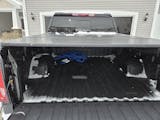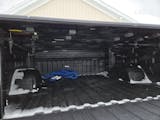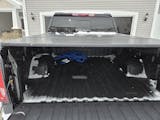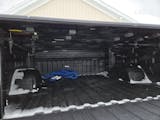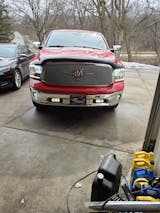Why Is My Car Leaking Radiator Fluid?
If you notice that your car is leaking radiator fluid, it can be a cause for concern. Any leak can lead to serious engine problems if not addressed immediately. In this article, we will examine the various reasons why your car may be leaking radiator fluid.
The radiator circulates coolant (antifreeze) through the engine, absorbing excess heat and releasing it through the radiator to prevent the engine from overheating. A leak in this system can disrupt the cooling process and cause serious damage to the engine.
Common causes of radiator fluid leaks include
Damaged Radiator Hose
One of the most common causes of radiator fluid leaks is a damaged or deteriorated radiator hose. Over time, these hoses can wear out, crack, or even develop holes, resulting in coolant leaks.
Faulty radiator cap
A defective or loose radiator cap can cause a coolant leak. Check the condition of the cap and make sure it is properly tightened. If the cap shows signs of wear or damage, consider replacing it.
Cracked or Damaged Radiator
For various reasons, such as age, corrosion, or impact damage, the radiator itself can develop cracks or leaks. Inspect the radiator for visible signs of damage, such as coolant stains or puddles under the vehicle.
Faulty water pump
Responsible for circulating coolant through the engine and radiator is the water pump. A malfunctioning water pump can result in inadequate coolant flow, causing overheating and leaks.
Loose or Damaged Hose Clamps
Hose clamps hold the radiator hoses in place. If these clamps are loose or damaged, coolant may leak. Make sure all hose clamps are properly tightened and replace any damaged clamps.
Corroded Heater Core
The heater core, which is responsible for providing warm air to the interior of the vehicle, can corrode over time. A corroded heater core can cause coolant leaks. If you notice a sweet smell in the car or moisture on the floor, the heater core could be the culprit.
Cracked engine block
In rare cases, a cracked engine block can cause radiator fluid leaks. This is a serious problem that may require professional inspection and repair. Signs of a cracked engine block include white smoke from the exhaust or an overheating engine.

Diagnosing and Correcting the Problem
Perform a visual inspection
Start by visually inspecting the engine compartment and underneath the vehicle for signs of coolant leaks. Look for puddles or spots that indicate a leak. Observe the radiator, hoses, water pump and heater core.
Checking coolant levels
Monitor the coolant level in the radiator and the overflow tank. Low coolant levels can indicate a leak. If you notice a drop in the coolant level, top up the coolant and see if the level returns.
Pressure Testing the Cooling System
A pressure test can help locate leaks in the cooling system. A professional mechanic can use a pressure tester to pressurize the system and locate the source of the leak.

Conclusion
A vehicle with a radiator fluid leak is a problem that should not be ignored. Regular maintenance, visual inspection, and prompt repair of any leaks can help ensure the proper functioning of your car's cooling system. If you are unsure of the source of the leak or lack the expertise to fix it, it is advisable to consult a qualified mechanic for a thorough diagnosis and professional repair.
Featured Products
- $479.99
$499.99- $479.99
- Unit price
- / per
- $549.99
$559.99- $549.99
- Unit price
- / per
- $489.99
- $489.99
- Unit price
- / per
- $469.99
$489.67- $469.99
- Unit price
- / per









